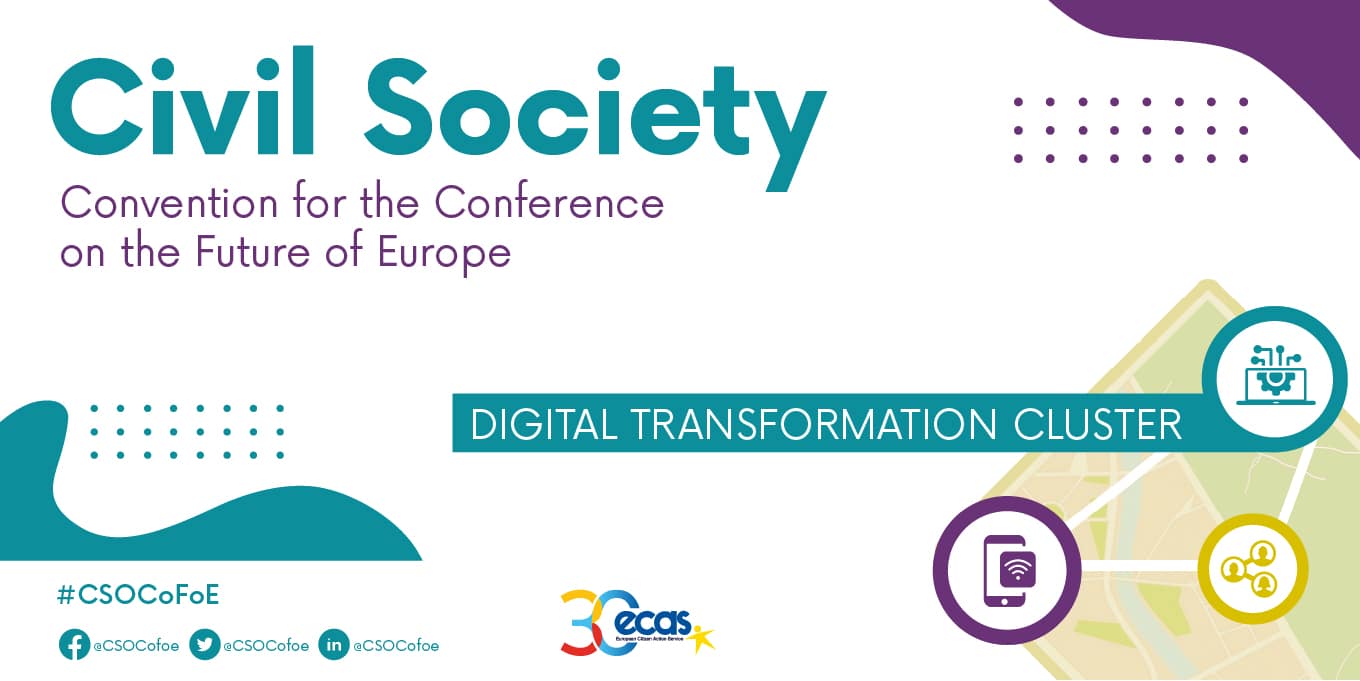
Are you representing a Civil Society Organisation (CSO) and do you want to share your views on the digital transformation of the EU? Then, we invite you to join the crowd and submit your contribution!
As part of the Convention, ECAS is chairing the Digital Transformation Cluster. In that scope, we are soliciting the views of CSOs on this matter. The aim is to elaborate policy proposals that will feed into the EU’s priority of “A Europe fit for the digital age”. The ambition of this priority is to strengthen the EU’s digital sovereignty and set standards on data, technology, and infrastructure – with a clear focus on education, ethics, fundamental rights and European values.
The crowdsourcing activity is composed of five questionnaires. The topics cover: (1) Digital Democracy, (2) Digital Education, (3) Digital Safeguards, (4) Defending rights and freedoms online and (5) Digital Economy. Organisations that take part are asked to indicate their policy ideas / proposals in the form of statements (max 2 sentences) under each of the topics and subtopics that are relevant to them.
All of these CSO contributions will be collected to ultimately formulate policy proposals that will feed into the EU’s priorities on digital transformation.
The Civil Society Convention on the Future of Europe is a network of more than 90 organisations all over Europe and was initiated to create a link between civil society organisations and the institutional setting of the Conference on the Future of Europe. The goal is to ensure an ambitious, structured and looking forward agenda for the Conference, and that citizens’ proposals and concerns will be taken into account in the agenda setting and discussions, and be followed up with the most adequate and concrete policy, legislative and, if relevant, treaty change solutions.